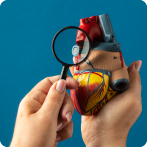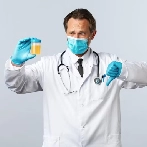Doctor Listing
Treatments provided by Cardiologist
Venous Leg Ulcer
Rheumatic Heart Disease
Rapid Heartbeat
Palpitations
Inherited Heart Conditions
High Blood Pressure
Heart Problems
Heart Palpitations
Heart Failure
Heart Attack
Enlarged Veins
Deep Vein Thrombosis
Congenital Heart Disease
Common Heart Conditions
Chest Tightness
Chest Pain
Chest Discomfort
Bypass Surgery
Blood Clots
Angiography
Abdominal Aortic Aneurysm
Why Bajaj Finserv Health?
At Bajaj Finserv Health, you can book your preferred appointment slot with an experienced and qualified specialist doctor near you! With our digital record-keeping system, you can stop worrying about misplacing your prescriptions, lab tests & other medical papers.Simplify healthcare.
FAQs about Cardiologist in Pune
Should I see a cardiologist if my headache won't go away?
- Chronic headaches may indicate excessive blood pressure or other heart-related conditions. Therefore, you can find out if the headache is brought on by a heart issue by seeing a cardiologist near you in , Pune.
How much does a cardiologist doctor in , Pune charge for a visit?
- The cost of a cardiology consultation varies depending on the physician’s level of experience, the type of consultation (offline or online), and other considerations.
Can a cardiologist treat children's heart conditions?
- Yes. Cardiology experts are qualified and trained to identify and treat children's heart conditions. Both congenital (existing from birth) and acquired (occurring after birth) heart conditions can be treated by the best cardiologist doctors in , Pune.
What kind of educational training is required to become a cardiologist?
- To become a cardiologist, a person must earn their MBBS and MD, Cardiology degrees.
Is there an advantage to scheduling my cardiologist appointment through Bajaj Finserv Health?
- Yes. There are several advantages:
- The profiles of top cardiologists in , Pune can be browsed
- You can view information about the doctors' availability, location, fees, and experience
- You can schedule an in-person or online consultation
- You can pay using online or using cash
Can an instant consultation be booked immediately with a cardiologist in , Pune?
- On the Bajaj Finserv Health portal, you can request an immediate appointment with a cardiologist for an online consultation. With the App or website, you may search for the best cardiologists in , Pune and promptly schedule a consultation with an available expert.
How can I get in touch with a cardiologist in , Pune?
- You can consult a cardiologist in the following ways:
- Offline (in-person)
- Online (over the phone or via video call)
How can I pay for my cardiologist visit in , Pune?
- A cardiologist consultation can be paid for using:
- Cash
- Cards (debit or credit)
- UPI
- Online banking
- Bajaj Finserv Health wallet


Download the Bajaj Health App
Consult Top Doctors In-clinic. 35+ Specialities. 15+ Regional Languages. Consult Now!
Get the link to download the app
+91



